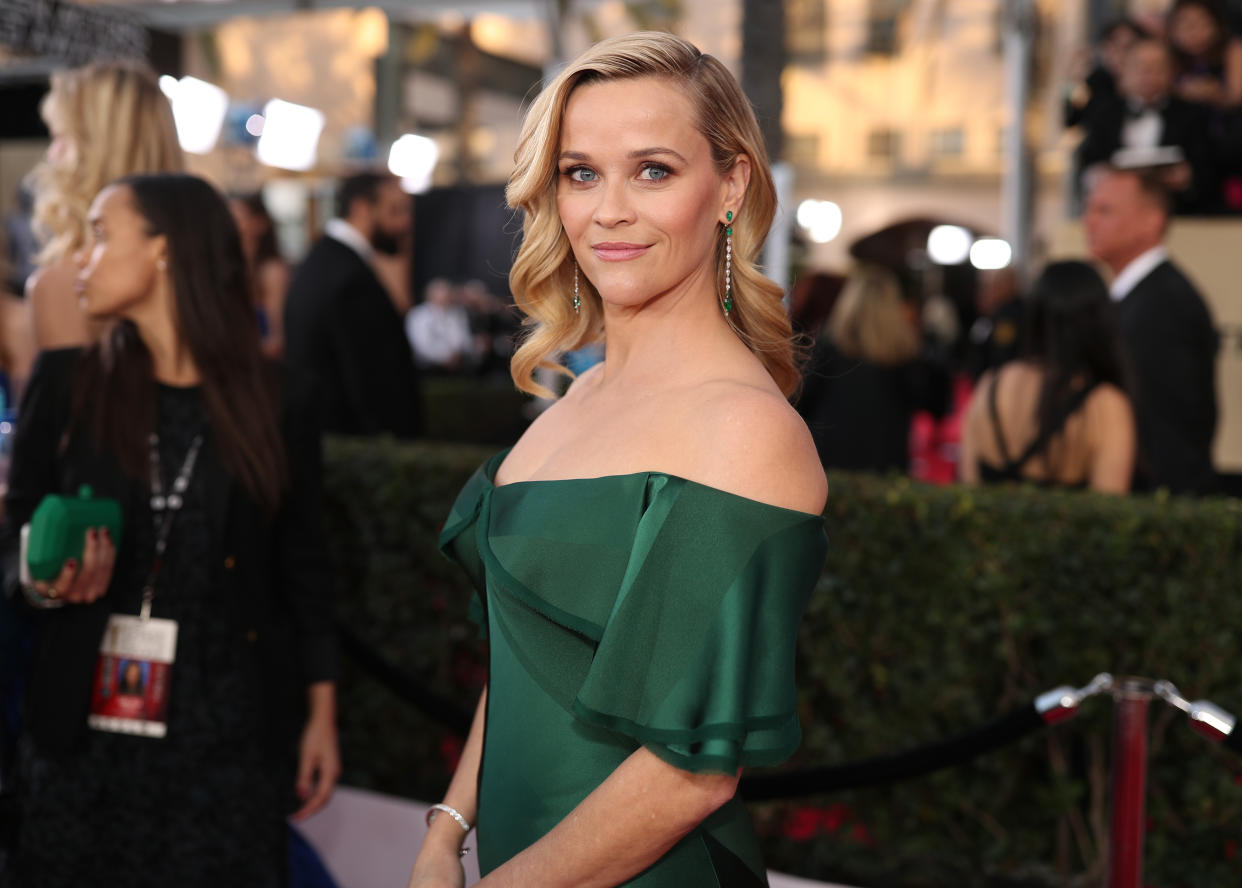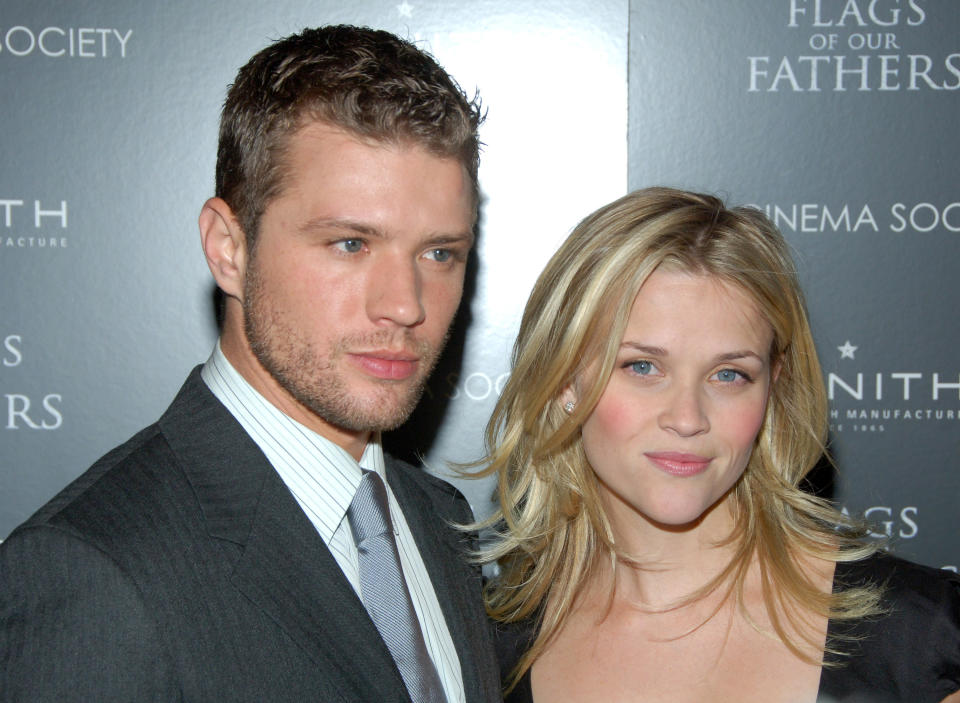'I felt more depressed than I'd ever felt': Reese Witherspoon opens up about postnatal depression

Reese Witherspoon has opened up about her experiences of postnatal depression with Jameela Jamil on her podcast, I Weigh.
The Big Little Lies actress explained how her postnatal experiences were different with each of her three children Ava, 20, Deacon, 17, and Tennessee, 7.
The 44-year-old first started therapy aged 16 and told Jamil her anxiety is something she has been managing with therapy her entire life.
“It’s like my brain is a hamster on a wheel and it won’t come off.” She explained.
Read more: Sharon Stone opens up about body confidence
Although she has faced mental health challenges throughout her life, Witherspoon admitted her biggest struggles were around the hormones involved in having a baby.
“I’ve had three kids and then after each child, I had a different experience. One kid I had kind of mild postpartum and then one kid I had severe postpartum, where I had to take pretty heavy medication because I just wasn’t thinking straight at all.
“And then I had one kid where I had no postpartum at all.”

Witherspoon believes part of the reason she struggled is because pregnancy hormones are “understudied and not understood”.
“I kept reaching out to my doctors for answers, there just isn’t enough research about what happens to women's bodies and the hormonal shifts that we have just aren’t taken as seriously as I think they should be.”
Read more: Fearne Cotton shares feelings around recent panic attack
The lowest she felt during her postnatal depression was when she was weaning her first baby from breastfeeding at 23-years-old.
“No one explained to me that when you wean a baby, your hormones go into the toilet. I felt more depressed than I’d ever felt in my whole life. It was scary.”
Despite one in ten women suffering from postnatal depression, many women don’t know how it can impact them until it does.
There’s also a clear differentiation between what is described as the “baby blues” and postnatal depression, the NHS explains.
The “baby blues” don’t last for more than two weeks after giving birth, whereas postnatal depression can start any time in the first year of having a baby and can go on for considerably longer if not treated.
Read more: A hug from a parent is the best way to reassure children
There are a number of signs to look out for if you think you might be suffering from postnatal depression - which is also referred to as postpartum depression.
They include; a persistently low mood, lack of enjoyment, lack of energy, trouble sleeping, difficulty bonding with your baby, withdrawal from contact from others and frightening thoughts - like hurting the baby, for example.
Many health visitors have been trained to recognise symptoms of postnatal depression in women during their visits. If you think you’re suffering from it, it’s important to seek advice from the health visitor of your GP.
Witherspoon acknowledged that mental health issues - such as postnatal depression - are very treatable with the right support and urged people to do all that they can to “de-stigmatise it”.



